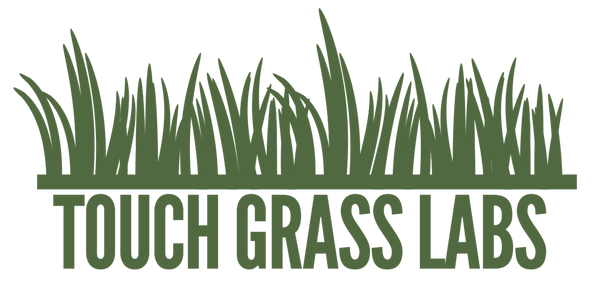History of Touch Grass: Meme to Movement

What does “touch grass” mean? At first glance, it might sound like a sarcastic internet insult. And to be fair, that’s how it began. But in recent years, “touch grass” has evolved beyond a throwaway phrase. It’s become a cultural shorthand for reclaiming your time, attention, and well-being in a world increasingly dominated by screens. At Touch Grass Labs, we have made this our mission: a call to reconnect with the real world.
The Roots of “Touch Grass”
The phrase “touch grass” has fuzzy origins. Some internet sleuths trace it back to the online gaming community, while other online archaeologists found Twitter and Reddit users saying “touch grass” as early as 2015; often using the term to tell others to log off and go outside. We found mentions of the phrase dating back as early as 2009 on Twitter, though they gained no traction. It wasn’t until 2015 when the phrase began appearing in conspiracy circles and gamer culture, often deployed as a digital slap.
While ‘touch grass’ was mainly used to mock overzealous internet users, it’s curious that some of the most popular posts with the phrase coincided with heartwarming viral moments of rescued animals, like cows and beagles, touching grass for the first time. And even an elephant named Lucky, who touched grass for the first time in 50 years. Whether by coincidence or not, these emotionally charged moments show an unexpected connection between the digital phrase and a yearning to reconnect with nature.
“Touch Grass” Evolves Beyond an Empty Catchphrase
In 2020, “touch grass” gained prominence. At least 13 tweets using the phrase received more than 1,000 likes. Two viral tweets even crossed the 100,000 like threshold, including by @halsey, who has now amassed over 13 million Twitter or “X” followers.
The posts marked a turning point. “Touch grass” entered the public consciousness. But it wasn’t exactly gentle advice. “Touch grass” continued to be wielded as an insult. If someone was ranting about a video game or getting into a comment war over internet drama, a respondent might drop a blunt “go touch grass.”
By 2021, “touch grass” reached the stratosphere. After a year of pandemic-induced isolation, a hotly contested presidential election, and the rising loneliness crisis, people commonly repeated the phrase, “touch grass.” And it was not always used as a jab, rather as advice. What began as a digital insult slowly softened to become frank yet funny advice.
It was still tongue-in-cheek, but it rang true. The phrase became a stand-in for all the things people were starting to crave again: balance, perspective, and real connections. What began as a savage clapback turned into a rallying cry for self-care and mental clarity.
Major platforms noticed. National Geographic, ABC News, and European fashion magazine NSS, highlighted the benefits of being in nature, citing studies that connected time in green spaces with reduced stress, improved mood, and social and academic performance.
By 2024, the shift in meaning was undeniable: Merriam-Webster added “touch grass” to the dictionary, defining it as:
“To participate in normal activities in the real world, especially as opposed to online experiences and interactions.”
It wasn’t just a meme anymore. “Touch grass” became a humorous yet helpful reminder that sometimes, you just need to take a break from the digital noise. It’s shorthand for stepping away from social comparison, doomscrolling, influencer FOMO, and online rage spirals. It’s a reminder to unplug, not permanently, but intentionally.
Written by:
Kyle C
President, Touch Grass Labs, LLC
Last Updated July 22, 2025
